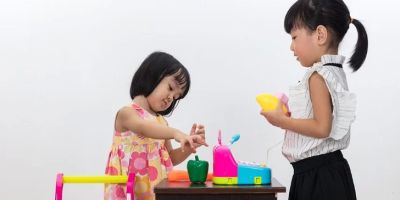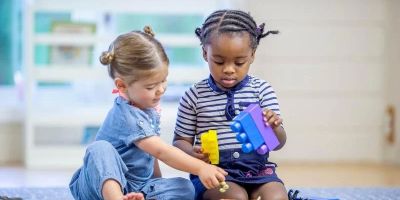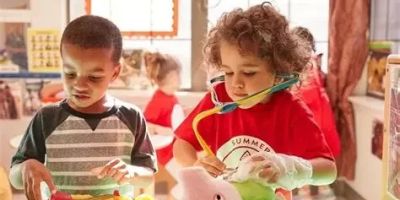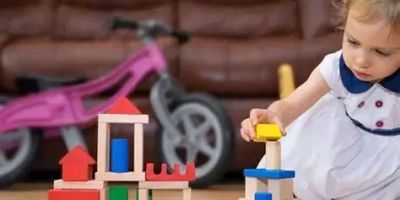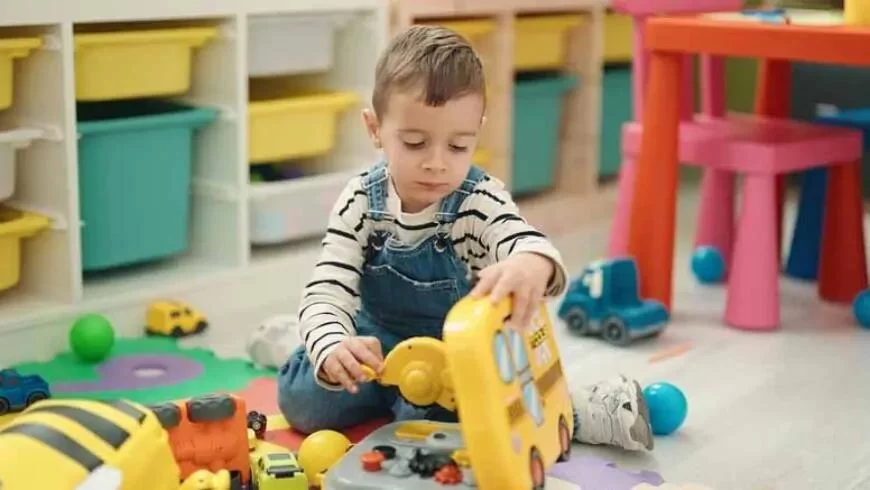
- How Toys Contribute to Self-Control Development
- The Role of Play in Cognitive Growth
- Practical Examples of Toys Enhancing Self-Regulation
- Choosing the Right Toys for Developing Self-Control
How Toys Contribute to Self-Control Development
Toys are not just tools for fun and entertainment—they play an essential role in a child's development, particularly in cultivating self-control. Self-control is the ability to manage one’s emotions, behaviors, and impulses, which is crucial for a child’s emotional and social growth. Many toys can help children practice waiting, taking turns, and following rules, all of which are important aspects of self-control.
When children engage with toys that require patience and delayed gratification, they are learning how to wait for rewards and resist impulsive actions. Simple activities like stacking blocks, playing board games, or following instructions for assembling toys all help children practice self-regulation in an enjoyable way. By engaging in these activities, kids begin to understand the connection between their actions and outcomes, reinforcing the development of self-discipline.
The Role of Play in Cognitive Growth
Play is an essential part of cognitive development, and it plays a significant role in teaching self-control. Cognitive growth includes the development of reasoning, problem-solving, and decision-making skills. Toys that encourage strategic thinking, such as puzzles or memory games, challenge a child's ability to focus and make thoughtful decisions, fostering cognitive skills while simultaneously promoting self-control.
For instance, when playing a game where a child has to plan a series of moves, they learn how to control their impulses and think ahead, which reinforces patience and thoughtfulness. Cognitive growth through play helps children build a mental toolkit for understanding how to navigate challenges and make better choices in various situations, from school to social interactions.
Practical Examples of Toys Enhancing Self-Regulation
Several types of toys can specifically target the development of self-regulation in children. Here are a few practical examples:
- Building Blocks and Construction Sets: Toys like Legos and wooden blocks encourage children to focus on a task for an extended period of time, helping them practice patience and perseverance. The challenge of building something complex helps children regulate their attention and avoid distractions. ```
- Board Games: Classic board games like Monopoly, Chess, and Candy Land require children to take turns and follow rules, which helps with impulse control and turn-taking. These games also teach children the importance of patience and delayed gratification as they work towards achieving a goal.
- Memory and Matching Games: Memory games help improve concentration and self-control by encouraging children to focus and remember patterns or objects. By requiring a child to control their impulses to peek or skip turns, these games also nurture self-regulation. ```
These examples demonstrate how toys can be used intentionally to support the development of self-regulation, which is a key component of self-control.
Choosing the Right Toys for Developing Self-Control
When it comes to choosing toys to help children develop self-control, it’s important to consider the child’s age, interests, and developmental stage. Here are a few tips on selecting the right toys for fostering self-regulation:
- Age-Appropriate Challenges: Choose toys that present an appropriate level of challenge for the child’s age. For younger children, simple puzzles or stacking toys might be most beneficial, while older children can engage in more complex board games or strategy-based toys. ```
- Interactive and Engaging Toys: Toys that require children to actively participate, such as interactive board games or toys that require focus and attention, are ideal for developing self-control. These toys encourage children to be more engaged and thoughtful in their play.
- Promote Social Interaction: Toys that encourage group play and social interaction, like team-based games or cooperative activities, can help children learn patience, turn-taking, and sharing, all of which are essential components of self-regulation. ```
At Knight Toys, we offer a wide range of toys designed to help children build self-control and foster overall development. Whether you’re looking for toys to challenge cognitive growth or enhance emotional regulation, we have options to support every stage of your child's development.

